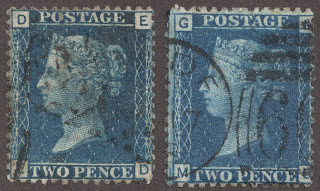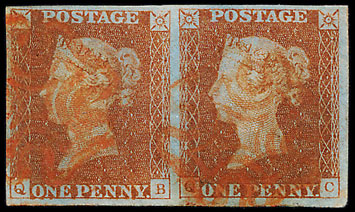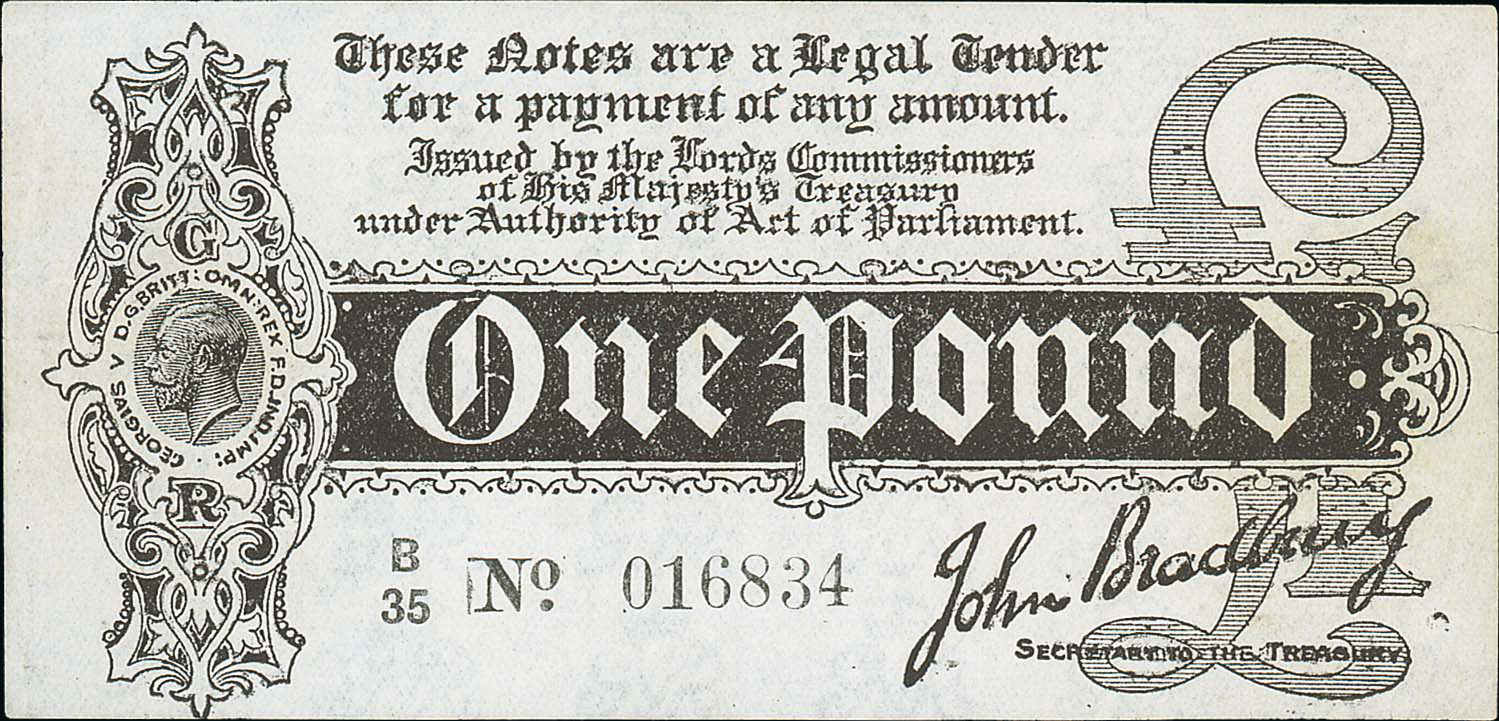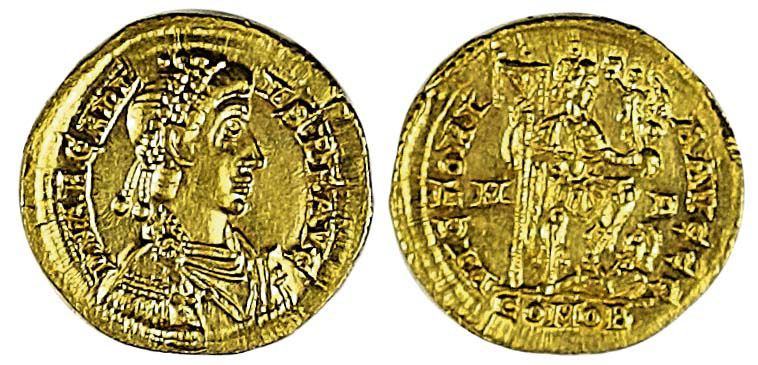Unearthing a rare stamp is like finding a needle in a haystack. It’s highly unlikely, but hidden gems do still turn up. With tens of thousands of active collectors based in the UK, and millions more around the world - especially in Asia, there are plenty of rare stamp collections which have not yet been discovered.
Having valued and sold specialist philatelic items since 1958, our team of stamp experts always love it when they are presented with a charming collection or stumble across a splendid stamp in an otherwise unremarkable assortment. But we’re equally disappointed when we hear of inexperienced owners who have offloaded valuable stamp collections for a fraction of their real worth.
If you’ve lovingly compiled a cherished collection or have inherited one, the aim of this guide is to inform you about the many different ways which can help you achieve the highest possible realisation.

Don’t rush to sell before getting valuation
There are many reliable sources of philatelic information, but when you’re trying to secure an accurate valuation for a stamp collection it’s important to know who you can trust.
Before deciding on the best place to sell your items, it’s important to conduct some simple research so you know a little bit more about them - and what they could potentially be worth. Whilst this is always difficult to ascertain, our in-depth Stamp Grading Guide will help you discover the most important factors and their impact on value.
For many novices, the Philatelic Traders Society (PTS) is the first port of call to make an initial enquiry. As a trade society for stamp dealers, the PTS does not value stamps itself but its members may be able to help, often for a fee at their discretion.
Free valuations can usually be obtained from high street stamp shops but, unfortunately, many of these have disappeared over the years. Even on The Strand in London, only two have survived, when there used to be many.
Stampex, a free annual event which takes place in Islington in London at the beginning of September, is another great place to visit, and it may be possible to obtain a valuation of your collection there.
If you want a fast, free and accurate quote from a trusted expert, our team of stamp valuation experts will be happy to help at any time of the year - and there’s no obligation to sell your item.
Or take a look at our How to appraise stamps guide for more information about the effect condition has on value.
9 ways to sell your stamp collection
The following options are all excellent ways to sell a stamp collection – depending on your personal circumstances.
Use a dealer
In our experience, there are a lot of dealers who are also collectors in search of a bargain – unfortunately they’re never going to advertise this fact so be on your guard. Reputable dealers will tell you whether your collection is of particular value or not, and will also advise whether you should sell your items individually or as a collection. If it is of significant value, they might even make you an offer. However, if you only want a detailed valuation some may charge for this service if they don’t have first option to buy.

Stamp magazines
The reputable publication 'Stamp Magazine' (above) is available from larger newsagents and the classified advertising section will help you to locate dealers and collectors who offer a valuation service. It could be advantageous to get in touch with a few to see what price they charge and determine any terms or conditions they attach to this service (such as having first refusal to purchase) before deciding whether to use them.

Stamp fairs
Taking place regularly up and down the UK, stamp fairs (seen above) are a great place to meet philatelic enthusiasts. Be warned; dealers, collectors and complete novices often meet at these gatherings so it’s important to be cautious if you intend to proceed with a sale.

Philatelic Traders Society
Disposing of a stamp collection to a member of the Philatelic Traders’ Society (PTS), which has hundreds of members in the UK, is a good way to ensure it will go to someone with a genuine philatelic interest. The PTS will tell you about dealers and collectors in your area who are willing to give you a price, but each of these will have different buying requirements so you may need to get more than one quote. Should anything go wrong with the sale, you would have immediate recourse through the society, which asks its members to abide by a code of ethics, although this is not a legally-binding agreement.
List it on eBay
Love it or loathe it, eBay gives you access to a worldwide audience of potential buyers. Unfortunately, many of these will be reluctant to pay a premium for a collection they are unable to inspect.
If you’ve done your research and know what your items are worth, a detailed description will increase the likelihood of a sale. If you know very little about your stamps, it’s extremely difficult to accurately describe them and their condition - an important factor if you want to get the best price possible.
You can also list your items with a ‘reserve’ price to reduce the risk of losing them for a fraction of their true worth. Doing this will incur extra charges and you need to factor this in to the decision-making process before pursuing this avenue.
Choose a charity
Most high-street shops will accept stamp collections as a charitable donation. They then pass these to a specialist central department to obtain a professional valuation and secure a sale. If you inherited a collection from a deceased’s estate, which was above the inheritance tax threshold, the collections should have been valued and declared for tax purposes. Giving it away to a registered charity would make its value exempt from tax and could reduce your inheritance tax liabilities.

Sell at auction
Selling your stamp collection through an auction house, in return for a percentage of the profits, can offer unrivalled exposure to philatelic specialists and valuations which are usually meticulously researched. They’ll usually advise you whether to sell as a collection or split into individual lots.
Combining a live auction with internet and telephone bidding, specialist auction houses benefit from an extensive database of collectors and dealers who they correspond with on a regular basis. At Warwick & Warwick, our reputation is outstanding on all sides of the globe and we frequently liaise with stamp collectors from across the UK, Europe, the US and all over the world.
We are members of the Philatelic Traders Society of London and the American Stamp Dealers Association of New York – and our experts will happily conduct an accurate written philatelic valuation for free, with no obligation to sell.
Most auction houses charge a seller’s fee to place an item in a sale, which is either a flat fee or a percentage of the sale value.
In return for our knowledge, experience and exposure to specialist buyers; we have a 17.5% commission charge (plus VAT) for lots which are reserved at no more than 60% of our estimate - a total deduction of 21% of the hammer price. There is no additional charge for insurance, lotting, valuation or transport.
Even after taking commissions into account, it is often possible to get closer to the ‘retail’ price through an auction sale because their experts are working for your benefit to secure as much as possible, rather than negotiating against you.
Should you choose to pursue this sales method, it’s a relatively easy process. The auction house will take care of everything – from conducting an accurate valuation to describing and cataloguing your items in a manner which befits their worth. They will also liaise with dealers and collectors from around the world on your behalf.
Private Treaty Sale
Selling at auction may be an excellent way to achieve a good price, but a private sale can achieve excellent results and removes the uncertainties of the auction room. Known as a ‘Private Treaty Sale’ – because you sell your stamp collection to the auction house outright for an offer based on a fair and accurate current market valuation – it can sometimes appeal more to conservative collectors.
The main benefit of this method from a seller’s perspective is that you know exactly how much you’ll receive – and you won’t incur any commission charges or seller’s fees. Accepting an offer is easy. All you need to do is sign an instruction form and a cheque will be sent out as soon as it’s received.
We offer this service at Warwick & Warwick, where sales of this nature are underwritten by us - visit our Selling page to find out more.
Think carefully before selling valuable asset
Although this guide offers a valuable insight to anyone who is thinking of selling a stamp collection, it is by no means exhaustive - and you must think carefully before choosing your preferred method of sale.
In truth, the majority of stamps are actually worth very little because they are issued in huge quantities. However, if you are lucky enough to own a collection of rare stamps which are in good condition it might be a very valuable asset.
Having valued and sold thousands of rare stamps since 1958, we would strongly recommend that you seek a professional valuation before deciding whether to sell and where to do it. Trust is important when selling a stamp collection and you should never settle for one valuation. If possible, seek a few professional opinions before making your own mind up about what to do.
Once you know your collection’s true value, only then you can then fully appreciate how and where your investment should be marketed.
If you’d like to discuss any aspect of your collection or its worth with our philatelic experts, please send us an email or call 01926 499031 today.




